HIV Prevalence and Associated Factors Among Men in South Africa 30 Years into the Epidemic: The Fifth Nationwide Cross‑Sectional Survey
We investigated HIV prevalence and associated factors among men ≥ 15 years in South Africa using data from a 2017 nationwide cross-sectional survey. HIV prevalence was 10.5% among 6 646 participants. Prevalence increased from 4.1% in the younger men (15–24 years), 12.5% in young men (25–34 years) to 12.7% in older men (≥ 35 years). Odds of being infected with HIV were […]
Gender and sexuality: emerging perspectives from the heterosexual epidemic in South Africa and implications for HIV risk and prevention
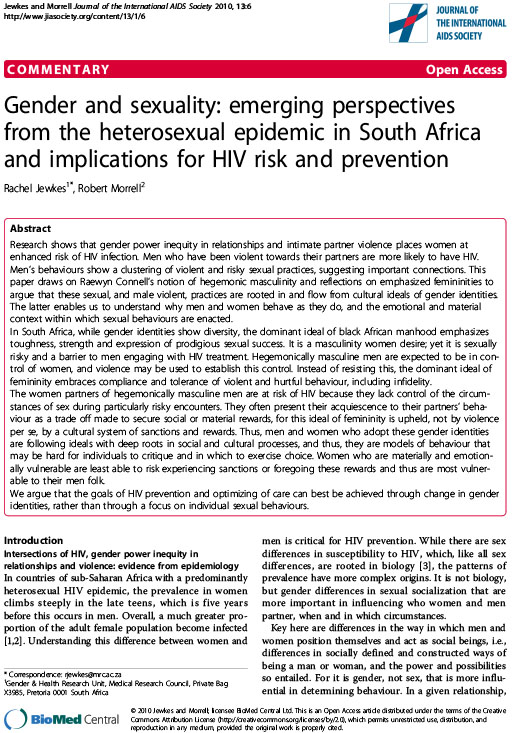
Research shows that gender power inequity in relationships and intimate partner violence places women at enhanced risk of HIV infection. Men who have been violent towards their partners are more likely to have HIV. Men’s behaviours show a clustering of violent and risky sexual practices, suggesting important connections. This paper draws on Raewyn Connell’s notion […]
Perpetuating gender inequity through uneven reporting
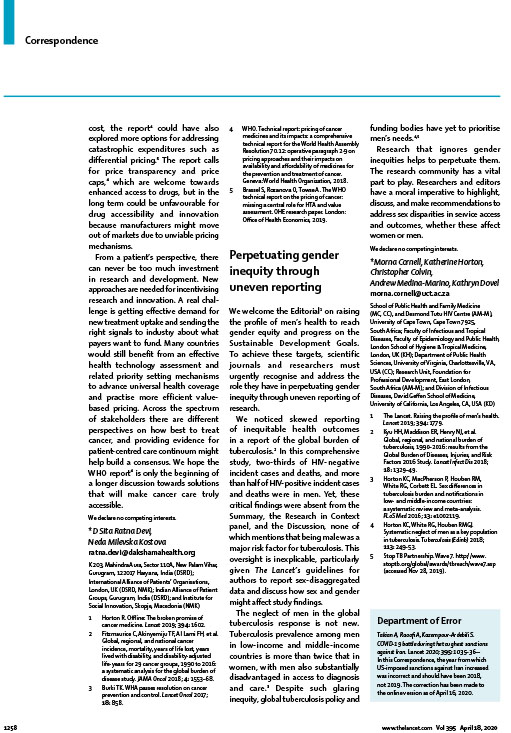
We welcome the Editorial on raising the profile of men’s health to reach gender equity and progress on the Sustainable Development Goals. To achieve these targets, scientific journals and researchers must urgently recognise and address the role they have in perpetuating gender inequity through uneven reporting of research.
HIV and risk of COVID-19 death: a population cohort study from the Western Cape Province, South Africa
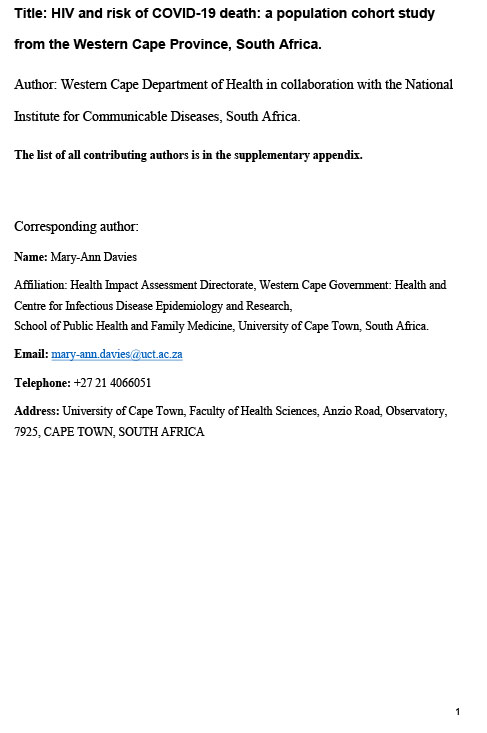
Background The effect of HIV co-infection on COVID-19 outcomes in sub-Saharan Africa is unknown. Methods We conducted a population cohort study using linked data from adults attending public sector health facilities in the Western Cape, South Africa. We used Cox-proportional hazards models adjusted for age, sex, location and comorbidities to examine the association between HIV […]
Neurodevelopment in perinatally HIV‐infected children: a concern for adolescence

Globally, an estimated 3.4 million children are living with HIV, yet little is known about the effects of HIV and antiretroviral treatment (ART) on the developing brain, and the neurodevelopmental and behavioural outcomes of perinatally HIV-infected (PHIV+) adolescents. We reviewed the literature on neurodevelopmental outcomes in PHIV+ children and adolescents, and summarized the current evidence […]
Young men and the construction of masculinity in sub-Saharan Africa: Implications for HIV/AIDS, conflict, and violence
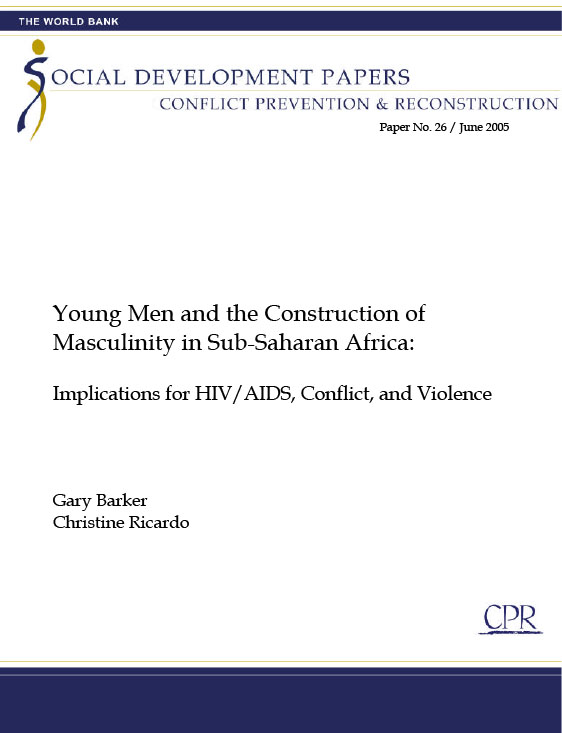
Gender is increasingly used as an analytical framework in program and policy development for youth in Africa, but in most cases gender refers almost exclusively to the disadvantages that women and girls face. Given the extent of gender inequalities in sub-Saharan Africa, an almost exclusive focus on women and girls has been appropriate. However, a […]
Silence, sexuality and HIV/AIDS in South African schools
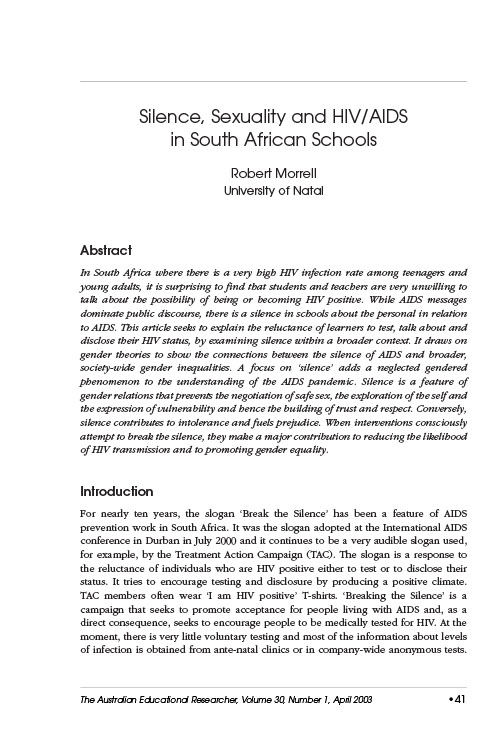
In South Africa where there is a very high HIV infection rate among teenagers and young adults, it is surprising to find that students and teachers are very unwilling to talk about the possibility of being or becoming HIV positive. While AIDS messages dominate public discourse, there is a silence in schools about the personal […]
Creating HIV risk profiles for men in South Africa: a latent class approach using cross-sectional survey data
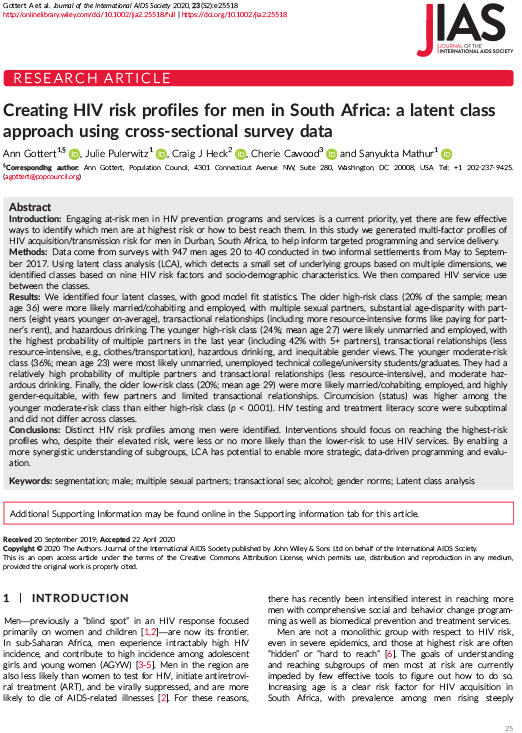
Introduction Engaging at-risk men in HIV prevention programs and services is a current priority, yet there are few effective ways to identify which men are at highest risk or how to best reach them. In this study we generated multi-factor profiles of HIV acquisition/transmission risk for men in Durban, South Africa, to help inform targeted […]
The men’s health gap: men must be included in the global health equity agenda
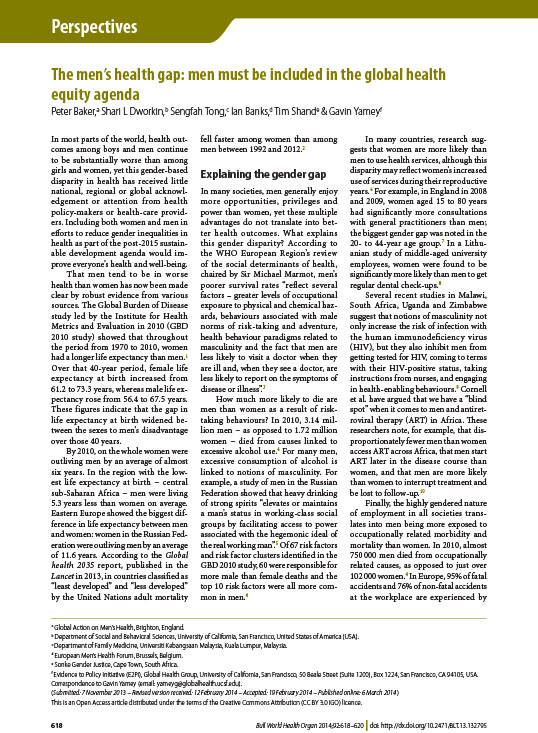
In most parts of the world, health outcomes among boys and men continue to be substantially worse than among girls and women, yet this gender-based disparity in health has received little national, regional or global acknowledgement or attention from health policy-makers or health-care providers. Including both women and men in efforts to reduce gender inequalities […]
Measuring Men’s Gender Norms and Gender Role Conflict/Stress in a High HIV-Prevalence South African Setting
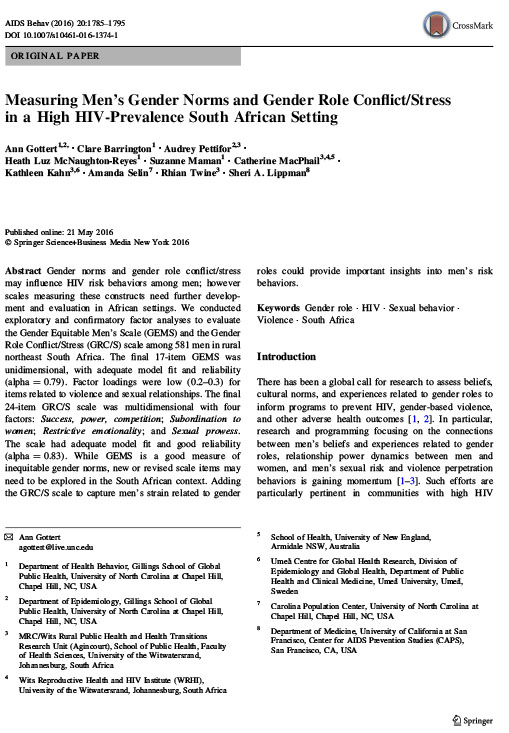
Gender norms and gender role conflict/stress may influence HIV risk behaviors among men; however scales measuring these constructs need further development and evaluation in African settings. We conducted exploratory and confirmatory factor analyses to evaluate the Gender Equitable Men’s Scale (GEMS) and the Gender Role Conflict/Stress (GRC/S) scale among 581 men in rural northeast South […]


